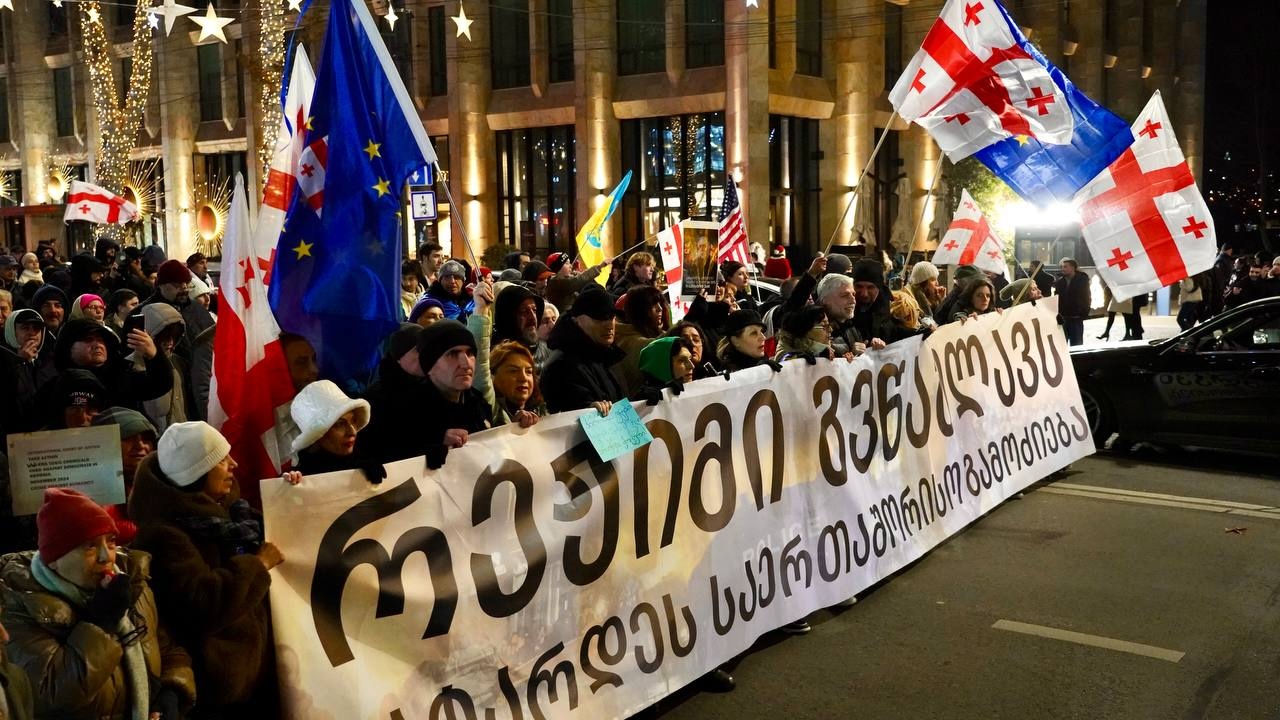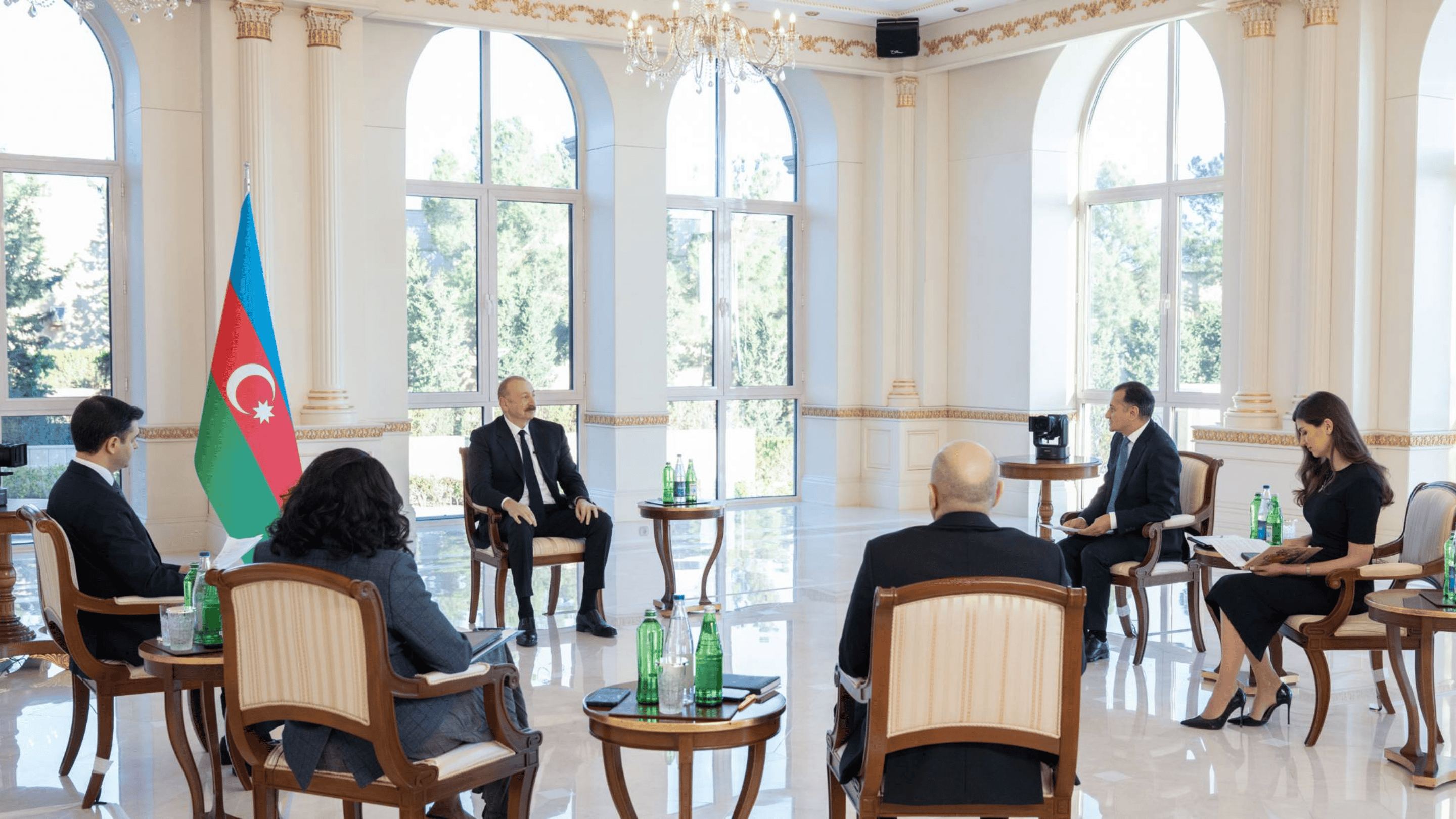Being a woman in Abkhazia –in their own words
What is it like to be a woman in Abkhazia and build your career or business at the same time? What obstacles does one have to overcome? Several successful women in Abkhazia shared their stories and views on life with us.
Nana
Nana Anchabadze, 29 years old, has been the owner of a beauty salon for 10 years. She also runs a training center for nail artists and a professional cosmetics and accessories shop. Today, four businesses operate under her leadership.
Nana is the mother of two children and is happily married.
- Survey: majority of Georgians see prospects for change to improve relations with Abkhaz
- “The number of horrible crimes against women in Abkhazia is unprecedented”
- Femicide in Georgia: a chronicle of tragedy
She got married early and at the age of 17, already with a child in her arms. She decided to study how to apply manicures, for this she went to Sochi and only her husband supported her in the idea – which many others thought was simply crazy.
“I was an excellent student. My parents saw my future much brighter, and the career of a manicurist did not fit into this concept for them”, says Nana, smiling broadly.
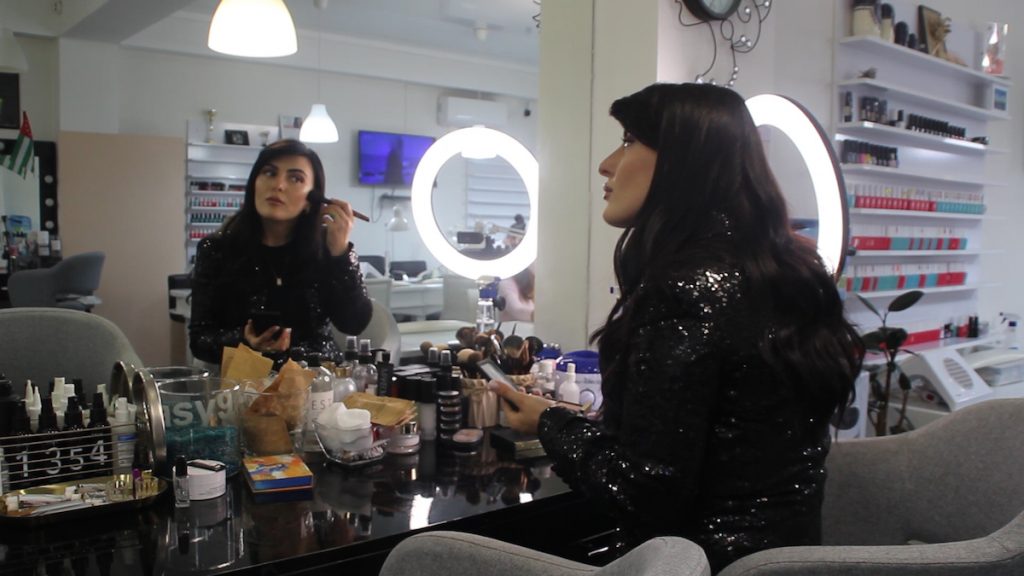
She went to Sochi with her 10-month-old son and while Nana was in class, her sister would look after him. Then, when she returned to Abkhazia and started to work 12 hours a day, her husband took over the childcare duties.
“I tried to accept everyone, did not refuse anyone, and tried to please everyone. When I realized that there were too many clients to handle, and I had enough experience to train others, I decided to open my own salon. My husband also supported me and, to this day, he helps handle organizational issues”, Nana says.
Behind every successful man is a good wife, says an Abkhaz proverb. This happened in reverse in Nana’s family, yet she does not think of herself as the head of the household.

“Despite the fact that I founded this business, I put my heart and soul into it, without the help of my husband I would not be able to do it. I discuss all my ideas with Ruslan and if he does not agree, then I refuse to go through with it. The last word is always with the man. After all, we live in the Caucasus. I cannot say that this infringes on my freedom in any way, I would say that joint decisions relieve me of some of the responsibility. That’s the right way to put it”, Nana explains.
Tata
Tata Bojgua is the mother of two sons, a blogger, a travel agent, and a businesswoman. Tata has many projects. Photoshoots for her blog, a hotel for rent, and a shop selling hot chocolate and sweets in the center of Sukhum.
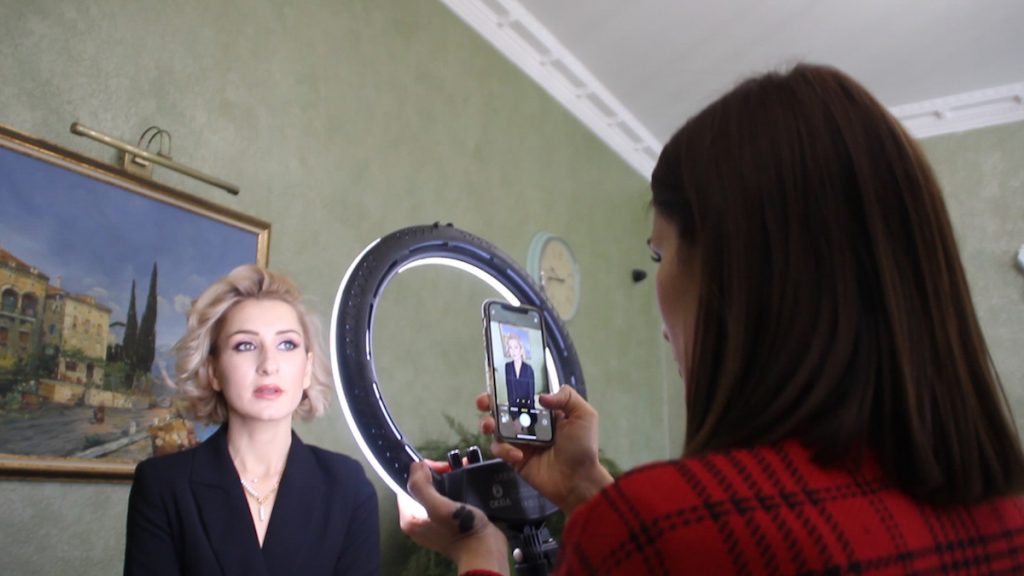
Tata differs from most girls not only by her energy and efficiency but also by the fact that she talks about her divorce and the reasons behind it openly on her Instagram page. Before the divorce, Tate had to provide for the whole family. She taught at the children’s center and gave private lessons in the Abkhaz language.
Tata says women are responsible for fact that men today are no longer the breadwinner in families:
“Today women are raising men who are incapable of becoming worthy husbands. The daughter is obliged to take care of the house and children, she is obliged to bear responsibility. What about the sons? He’s a man. He is responsible for the family only in words. There is a cult of man. Everyone should love and respect him just because he was born a man”, Tata says.
Tata raises her sons in a different way. She gives them a lot of love, but also a great deal of freedom so that her sons can learn to make the right decisions and choices in life. At the same time, she realizes that much like her children, she needs her own space to learn and grow as an individual and as a professional.
“I make a living for my little family. I go through training sessions, promotions, and contests on social media. I have to be fulfilled intellectually and spiritually so that I have something to pass on to children”, says Tata.
She is young and energetic, she knows a lot, and can withstand a lot. She is the head of the family, the nurse, she is the mother and father to her sons. Yet she remains a woman who dreams of a man who would take care of some of her problems for her.
“I would like to be able to stop, say that I’m tired of everything, and get some rest. Right now I cannot afford it. I would also like to let love into my life, a woman needs it, at least for inspiration”, Tata explains.
Aditsa
Aditsa works in the parliament of Abkhazia, as well as being an etiquette consultant, she has authored her own course and teaches etiquette to both children and adults.
Aditsa refers to herself as a feminist, but not one of those who fight for the right not to embellish their appearance to please men, but to those who strive to occupy the same positions as men without taking off their heels and those who can still accept the hand offered to them when they are getting out of the car.
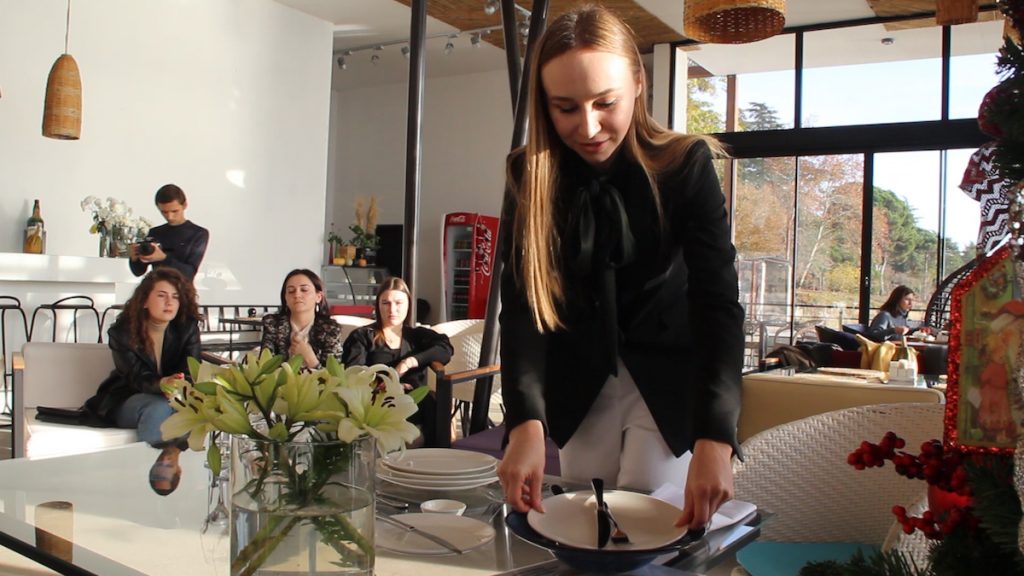
“Feminism is being able to earn money like a man, to have the same authority in one’s profession. We can only dream of this so far”, says Aditsa.
Aditsa believes that in Abkhazia it is not difficult for a woman to follow the career path that she has chosen if she truly wants to. At the same time, Aditsa adds that there are certain professions where it is more difficult for a woman to establish herself than it is for a man. Aditsa, being an employee of the main legislative body of the republic, sees that there is only one woman out of 35 deputies in Abkhazia and she has her own opinion as to why this is the case:
“Politics is, of course, purely masculine – it is combative. We have only one woman in parliament, and she has just this character”, Aditsa explains.
Natalie
Natalie Smyr’s office is no different from the offices of her male colleagues, except that instead of an ashtray, there is a vase full of sweets on the table. There are flowers on the windowsill, but as she explains, MPs have no gender, although she admits that her colleagues still perceive her emotional speeches and harsh statements on a particular issue through a gender filter.
“I don’t hear expressions like ‘shut up, woman’, but sometimes a colleague might say: ‘Natalie Viktorovna if you were a man, we would talk to you differently’. This indicates that they forgive me for speaking loudly. How else can you speak in parliament? If you want to be heard, sometimes you have to raise your voice”, says Natalie Smyr.
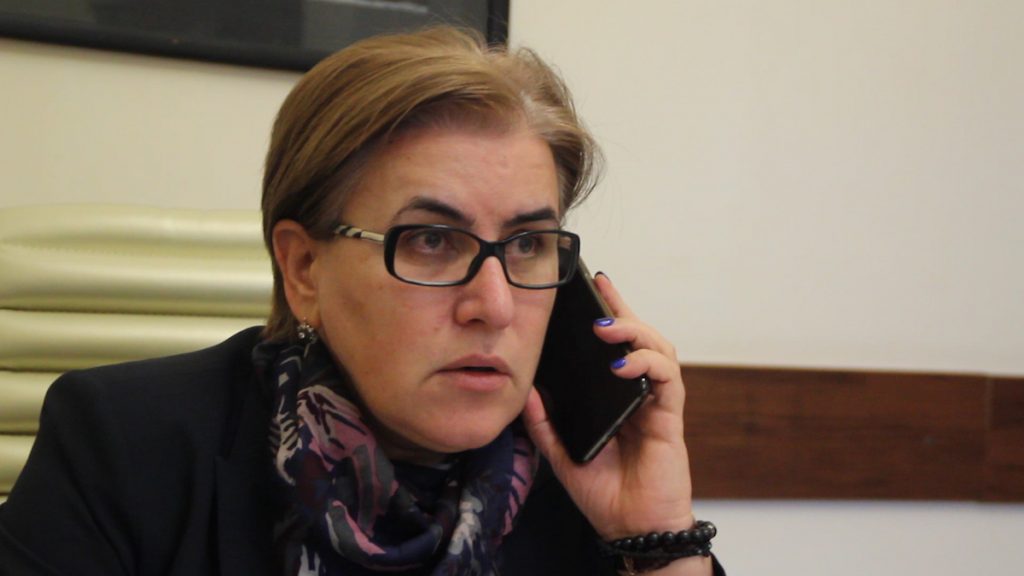
Natalie complains that Abkhaz women do not wish to get into politics, but at the same time, a woman’s hand is desperately needed in the parliament.
“Usually, draft legislation is discussed at a committee, where the swords are drawn, and then brought to the parliamentary session, where the votes are cast calmly. However, this is not the case with us. as the most heated debates unfold at the session all because half of the MPs did bother to come to the committee discussion. With women everything would be more organized, I think”, says Natalie Smyr.
Natalie Smyr believes that there are women in Abkhazia who can become worthy presidential candidates. However, for some reason, for all these years there has not even been a hint of a female candidate:
“A generation of the smartest, most educated women has grown up. All of them are now working as executives in ministries and departments, and they could run for the presidency. I hope this will happen soon”.
Looking at everything that is happening in Abkhazia right now, Natalie Smyr has no doubts that a woman’s view and approach to politics would be more constructive.
“Take the question of selling real estate [to foreigners – JAMnews], for example. Women are very careful about this problem. It is important for a woman to keep the land for her children. The woman thinks about the future of the family and organizes everything so that it is warm, nice, and cozy. Look around. We obviously do not have enough female perspective in power”, says Natalie Smyr.
In regards to gender-sensitive bills, there is still no law on domestic violence in parliament. More than once, representatives of civil society appealed to parliament with a request to initiate hearings on this issue, but in this case, the only woman MP then turned out to be in solidarity with her male colleagues.
Three years ago, Natalie Smyr spoke out strongly against the adoption of such a law. In her then opinion, family affairs should remain within the family, but today, as she admits, she would be in favor of such a law:
“A lot has changed. Many deaths of women have occurred. Still, a woman, a child, an old man, and a man should be protected by the law”, says Natalie.
Natela
Politics needs not just any women, but gender sensitive women says Natela Akaba, former MP of the first convocation of the Abkhaz parliament, and a former secretary of the public chamber and head of the Association of Women of Abkhazia created in 1999.
Natela Akaba believes that with the current composition of parliament, the law on domestic violence will not be adopted, since the MPs do not understand its importance and do not believe that it will somehow change the situation.
Having learned from the experience of the Association of Women of Abkhazia, Natela Akaba knows that domestic violence is a common reality for many women in Abkhazia today. Murders motivated by jealousy, reprisals against women who allegedly ‘disgraced the family’, beatings of wives and children that only the neighbors know about – in Abkhazia all of the above has no legal definition, although the rest of the world has long been calling it ‘domestic violence’.
Gradually the secrets are revealed, largely thanks to the work of the Association of Women of Abkhazia.
Natela Akaba believes that the main problem of the almost complete absence of female opinion in politics is the lack of female solidarity and the low level of political culture. After all, many women do run for the parliament of Abkhazia, but practically no one is elected.
“We vote according to the principle of kinship or for a promised position or a new status. There is no political literacy and culture”, says Natela Akaba.
Natela Akaba sees the root of evil in the isolation of Abkhazia, and the solution is to overcome it. It is difficult to carry out reforms in the republic, educate young people and, in principle, develop, while there is no opportunity to openly communicate with the world.
“We need solid support from international organizations so that we can work actively. The isolation and partially recognized status of Abkhazia do not help us to somehow take into account international standards”.
Natela explains that in other states of the South Caucasus, UN Resolution 1325 which recognizes the necessity to strengthen the role of women has already been adopted and the national plans for its implementation have already been launched.
“We turned to politicians with a question of whether we should also ratify this resolution, but they said ‘well, they don’t recognize us, we are not members of the UN, why should we do it’. So this partial recognition does not contribute to the strengthening of the status of women in our country”, says Natela Akaba.
Female politicians, businesswomen, bloggers, feminists – all women of Abkhazia who have embarked on the path of struggle for freedom of self-realization do not speak about the obstacles imposed by men. What they overcome is not gender-specific. The enemy is hiding within, it is the stereotypes that women used to shield themselves from the world. Today this shield has turned into a shell that does not allow women to grow, and they are just now learning how to get rid of it.
Toponyms, terminology, views and opinions expressed by the author are theirs alone and do not necessarily reflect the views and opinions of JAMnews or any employees thereof. JAMnews reserves the right to delete comments it considers to be offensive, inflammatory, threatening or otherwise unacceptable













